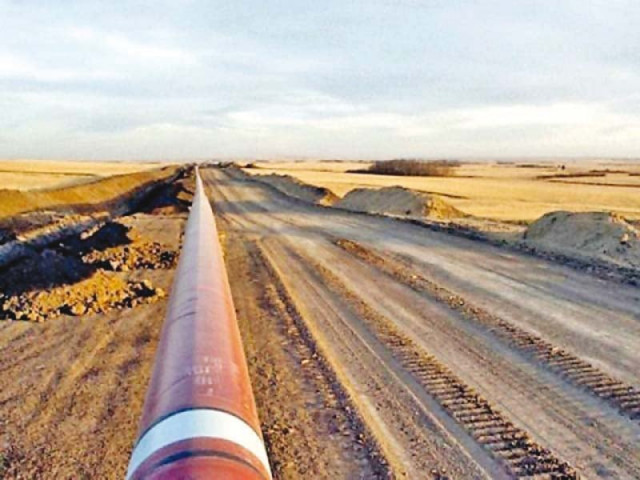Trade opportunities knocking on Pakistan’s doors
Country can meet its growing energy needs with the help of Iran and Russia

Country can meet its growing energy needs with the help of Iran and Russia. PHOTO: FILE
Recently, two major developments have taken place in the region which will have a deep impact on Pakistan’s search for energy supplies.
The nuclear deal between Iran and global powers and the permanent membership for Pakistan and India of the Shanghai Cooperation Organisation (SCO) have sparked hopes of energy ventures with Pakistan.
An agreement for gas import from Iran has already been signed years ago whereas Russia, a key member of the SCO grouping, has offered billions of dollars for energy projects including a liquefied natural gas (LNG) pipeline from Karachi to Lahore to pump imported gas across the country.
Though Tehran is rich in oil and gas, global sanctions have hurt its energy industry including the Iran-Pakistan (IP) gas pipeline project. Reports suggest the Gulf country had been enduring a loss of $300 billion annually because of the international curbs.
Read: Pakistan, Belarus agree on joint ventures
Inflation in the country had surged to 40% while economic growth had turned negative. Relations between Pakistan and Iran – the first country to recognise Pakistan after its creation – have been cold since long, causing problems for the former.
Now that sanctions are going to be lifted as part of the nuclear deal, Pakistan could take benefit to a great extent in terms of meeting its energy needs.
Iran has 20% to 25% of world’s oil reserves. Its supply to the world will increase and prices may come down further. Pakistan could also lay its hands on the cheaper oil and gas. At present, it is looking at LNG and coal with eagerness, but cheaper supplies can be sourced from Iran.
Hopes are high that Iran could also join the China-Pakistan Economic Corridor, which will give an added value to the $45 billion project. However with this, a new tussle may emerge between Arab states of the Gulf and Tehran, triggering an arms race between the rivals.
In this scenario, Pakistan can play the role of an effective broker to create a balance in relations, particularly between Iran and Saudi Arabia, UAE, Bahrain and Qatar.
Position of Saudi Arabia
In its relations with Saudi Arabia too, Pakistan has to maintain a delicate balance. Riyadh has been an old friend and has helped Islamabad on a number of occasions, especially when Islamabad conducted nuclear tests in 1998. At that time, it provided a free oil facility and also gave a grant of $1.5 billion last year to boost Pakistan’s foreign currency reserves.
Remittances sent home by millions of Pakistanis working in Middle Eastern countries are also a major source of foreign exchange in Pakistan.
However, Saudi Arabia is upset about the nuclear deal struck by Iran and world powers including the US. Experts believe Saudi Arabia will now be looking to countries like India to maintain its influence in the region. India has also had good relations with Iran for the past many years.
In order to stop the tense ties from developing into a conflict, Pakistan should play the lead role to calm the nerves in Saudi Arabia and Iran, which will become a major regional player along with China and Russia after the nuclear agreement.
Some experts are of the view that the US struck the nuclear deal in an attempt to keep Russia and China away from Iran. It wants to make Tehran its strategic partner as was the case in the past.
Read: Expanding trade with Mauritius
However, Iran seems to have a tilt towards China and Russia, which played an effective role in the nuclear agreement, and will join the Chinese and Russian bloc emerging in the region. At present, Tehran has observer status in the SCO and it could become a permanent member in the future.
As Pakistan has become a member of the regional bloc, it will be able to establish and deepen trade ties with member countries.
In another major development, Pakistan has received an invitation for the first time to attend a Brics summit. Brics comprising Brazil, Russia, India, China and South Africa is emerging as a powerful global financial and economic bloc. So, a host of opportunities are knocking at the doors of Pakistan and it should capitalise on them in order to give a big push to the economy and trade.
The writer is a staff correspondent
Published in The Express Tribune, August 10th, 2015.
Like Business on Facebook, follow @TribuneBiz on Twitter to stay informed and join in the conversation.



















COMMENTS
Comments are moderated and generally will be posted if they are on-topic and not abusive.
For more information, please see our Comments FAQ